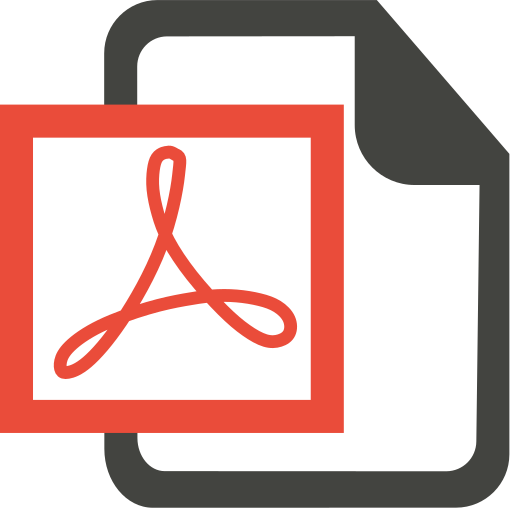Full Episode Audio (download link is to the right of the volume icon)
Listening Comp. Audio (download link is to the right of the volume icon)
Welcome to Lesson #18 of Stress Free German. Do you recall the image from the last lesson? Where they bake bread and cakes? Right….
Die Bäckerei.
Let’s envision a similar, and equally popular kind of shop. It’s called a Konditorei. Your nose draws you inside…the smell of dark chocolate and sweet pastries. The bell jingles as you walk in, and your eyes are drawn to the display case full of chocolates, pralines, and especially…Mozartkuglen.
What would you call such a shop in English? Maybe a Chocolate Shop? A Pastry Shop? Or to use the related word: A confectionery. Call it what you want in English, but in German it’s a Konditorei.
A place where you can buy Schokolade, or a Praline, or my favorite, a Mozartkugel.
Let’s try those again. The place is called a… Konditorei. And inside you can buy
eine Schokolade oder eine Praline, oder eine Mozartkugel.
Can you guess the gender of eveything in today’s picture? Right. Feminine. So as you gesture to the many shops surrounding the old town square, ask your tour guide:
Is there a pastry shop here?
Gibt es hier eine Konditorei?
A customer tells you: The chocolate is very tasty.
Die Schokolade ist sehr lecker.
to a friend: Your praline is on the table. “standing” on the table
Deine Praline steht auf dem Tisch.
Where is my Mozartkugel?
Wo ist meine Mozartkugel?
If you’ve never had one, a Mozartkugel is a small, round chocolate made of pistachio and marzipan. They’re a specialty of Salzburg, Mozart’s hometown. Anyway, of course, when we do something to feminine nouns, their supporting words?….right…they do not change. So try to say:
I’m looking for a pastry shop.
Ich suche eine Konditorei.
I’m taking his praline.
Ich nehme seine Praline.
I want your Mozartkugel.
Ich will deine Mozartkugel.
I love my chocolate.
Ich liebe meine Schokolade!
(swell)
So, if you’ve done any research into how to determine the gender of nouns, I’m sure you found articles telling you to pay attention to noun endings. Like, certain noun endings tend to indicate certain genders. And they’re right. The problem is, their approach is all backward: They’re asking you to memorize word lists and genders before you know any of the words. Not good. That’s why we waited all the way until Lesson 18. Because now that you know the words and their gender, we can point out their endings. Like today’s new word. What’s a pastry shop called again?
Konditorei And a bakery? Bäckerei And they’re both feminine. So, any guess on the gender of this word? Metzgerei You got it. Feminine.
Try to make the connection to “meats”….a meats-gerei. Metzgerei…is a butcher shop.
So ask: Is there a butcher shop here?
Gibt es hier eine Metzgerei?
Did you say “eine”? Excellent. Then ask:
Where is the butcher shop?
Wo ist die Metzgerei?
And how about this place? Listen: Schuhmacherei
Schuh…is shoe….macher….is maker….rei…makes it a place or a shop.
Schuhmacherei
Ask: Where is the shoe-maker’s-shop?
Wo ist die Schuhmacherei?
I bet you instinctively used die because you felt it was following the pattern of those other “rei” locations. And that’s the point: If you know the gender of certain words, then very often other words with the same ending will be of the same gender.
(MUSIC)
Do you recall the picture of the bench in front of the church? Do you recall what was on the bench?
Try to see the picture and those items. Eine Tasche und eine Zeitung
It’s that second one, Die Zeitung I want to look at. Because there are literally thousands of nouns in German that end with “u-n-g” and virtually all of them are feminine. Here’s one of the most useful.
(SFX – Cafe) Imagine you’re finishing your meal in a cafe. You get the waiter’s attention, and ask him for…
Die Rechnung, bitte.
Why did she say Die? Because like nearly all “ung” nouns, Zeitung is feminine. And can you hear the similarity between Rechnung and the English verb “to reckon?” Listen again:
the reckoning
Die Rechnung
“Oh, miss, may I have the reckoning, please?”
or in normal English: The check, please!
Die rechnung, bitte.
Another example of a “u-n-g” noun, perhaps the most common, is this: Wohnung.
I met a friend the other day in a cafe. She and her roommate were online, looking at apartments for rent. Off my curious glance she explained:
Wir suchen eine neue Wohnung.
A month later, there I was at their move-in party. Their new pad was a two-bedroom penthouse with hardwood floors, leather furniture, nice art on the walls. I told them…
What a beautiful apartment!
Was für eine schöne Wohnung!
Try to say: I’m searching for a new apartment.
Ich suche eine neue Wohnung.
The takeaway here isn’t so much these new words, but rather the idea that, as we progress through the course, I’ll be pointing out particularly useful endings which will then help you absorb the gender of many, many more nouns.
(MUSIC)
Now a little review of recent vocab.
It’s cold in the pastry shop.
Es ist kalt in der Konditorei.
It is warm in the apartment.
Es ist warm in der Wohnung.
Your friends are playing a new game. (video game SFX)
If you ask how they like it, what might they say?
Es macht Spaß!
Let’s say your shoes have worn thin from all the walking you’ve been doing lately. Ask your neighbor: Is there a shoemaker around here?
Gibt es hier eine Schuhmakerei?
Tell your friend: I’m making for you a big cake.
Ich mache dir eine große Torte.
Your elderly neighbor has come over to introduce himself. Tell him…
I’m making for you an orange juice.
Ich mache Ihnen einen Orangensaft.
TIP OF THE DAY
Today’s tip? Sometimes we need to train our ear. So let’s do some more minimal pairs. The second one in each pair will have an umlaut vowel. Listen closely and repeat…
Herren …hören
Ohr…Öl
Morgen mögen
Losung…Lösung
Boro….Büro
Kuchen….Küche
Mutter….müde
Groner….grüner
Last one…listen close:
hatte…. hätte
Before getting back to work, I just wanted to let you guys know that Volumes 2 and 3 of Stress Free German are now available so be sure to visit the site, StressFreeGerman.com and look for the banner that says, Volume II… get it here.
Alright, back to it. Now, we’ve got all these various shops that we know, right? The bakery, the pastry shop, and so on. So let’s take things to the next logical step and actually try to order something. There’s the door….(SFX bells jingle) The lady at the counter waves…
For now, let’s just listen as your friend Thomas makes an order:
Guten Morgen!
Guten Morgen.
Was darf es sein?
Ich hätte gerne eine Torte.
You wander over to check out the cake he ordered, but suddenly a second salesperson smiles at you: Kann ich Ihnen helfen?
Kann…ich…Ihnen…helfen?
Wait, I wasn’t expecting this. I try to parse the words she said, to make sense of it. Kann ich maybe that’s “Can I?” And then she said “Ihnen”… “to you”, and…helfen? Is that just the German word for “help”? Can I helfen you? is she just saying, Can I help you?
Well, there’s a delicious pizza under a heat lamp. Luckily, Thomas sees me and comes to the rescue…
Ich hätte gerne eine Pizza.
Listen to his first three words again: Ich…hätte…gerne
Literally: I would have with pleasure
This is a great phrase you can use when ordering things. So try to say:
I would have with pleasure a coffee.
Ich hätte gerne einen Kaffee.
The woman hands you a To-Go cup and you hand her the money. Cool! Your first official purchase in German. In fact, you’re so excited about it, you tell Thomas:
Now let’s go to the pastry shop.
Gehen wir jetzt in die Konditorei.
(SFX jingle)
This time the baker, a man in his forties, greets you…
Guten Morgen.
Guten Morgen!
Was darf es sein?
Tell him: I would like a Mozartkugel.
Ich hätte gerne eine Mozartkugel.
He makes a quizzical look and raises one finger:
Nur eine??
Tell him: Yes, only one. Thanks.
Ja, nur eine. Danke.
After you leave the shop, you see a kiosk where they sell hot drinks. You’re not even thirsty, but you’re so psyched about your progress, you run up and order tea. What do you say?
Ich hätte gerne einen Tee.
And again, how does that literally translate? I would have with pleasure a tea.
Later, at the bar, tell the bartender: I would have with pleasure a beer.
Ich hätte gerne ein Bier.
If you said einen Tee (because tea is masculine) and “ein Bier” because beer is neuter and the supporting words don’t change, then I authorize you to give yourself an A+.
(music)
Let’s end with some review.
Try to say: My friend works in the pastry shop.
Mein Freund arbeitet in der Konditorei.
Make that my female friend:
Meine Freundin arbeitet in der Konditorei.
My grandma works in this butcher shop.
Meine Oma arbeitet in dieser Metzgerei.
My grandpa works in the shoemaker’s shop.
Mein Opa arbeitet in der Schumacherei.
Is there a cashier here?
Gibt es hier eine Kasse?
My cellphone is broken.
Mein Handy ist kaputt.
Sir, your key is on the table.
Ihr Schlüssel ist auf dem Tisch
(to a friend) I’m giving you my Mozartkugel.
Ich gebe dir meine Mozartkugel.
Mmm! Danke! Sehr lecker! Aber….nur eine?
Don’t you just love totally random review? It hurts the brain a little, but in a good way. Just a few more….
I’m standing out on the balcony.
Ich stehe auf dem Balkon.
What a beautiful cake!
Was für eine schöne Torte!
(to your boss) How goes it?
Wie geht es Ihnen?
Alles gut, danke. Und dir?
The obvious follow up here is to tell her:
I’m making you a big apple juice.
Ich mache Ihnen einen großen Apfelsaft.
She says….
Mmm! Thanks! Delicious! But… just one?
Mmm! Danke! Sehr lecker! Aber….nur einen?
Did you say “nur einen” there? Because she’s implying, you only made me just one? And juice is masculine? Even when we’re just playing around and having some fun with review, you need to keep an ear out for the patterns.
See you next lesson!


Lesson PDF Download – Right click on PDF Icon – Save Link As…

I have been spinning my wheels for a few years before discovering this course. I’ve had learned so much in such a short period of time! I listen to each lesson twice, then review them again when I cover five lessons and this is WORKING for me! Ich liebe Ihren Deutschkurs, danke!
So glad to hear it, Scott. If you get the chance, please let others know about SFG on whatever platform you might frequent.
Meantime, keep up the great work and hope to see you in Volumes II and III!
I feel so competent after these lessons!
So glad to hear it, Sasha. Honestly, that’s the exact feeling we were aiming for with this course. To have you confident..with the grammar, with noun gender…with all of it. Thanks for sharing.